MÉRIDA, Yucatán, (October 28, 2021).- Many times it happens that those of us who live in Yucatán do not know the meaning in Spanish of the names of the municipalities, most of which come from the Maya language.
Therefore, in this brief article, we provide you with translations, and thus not only will you expand your cultural wealth but you will surely be surprised by certain meanings.
As there are 106 municipalities, so that you do not get mixed up, we are going to give you the names by geographical area. We also leave you a map:
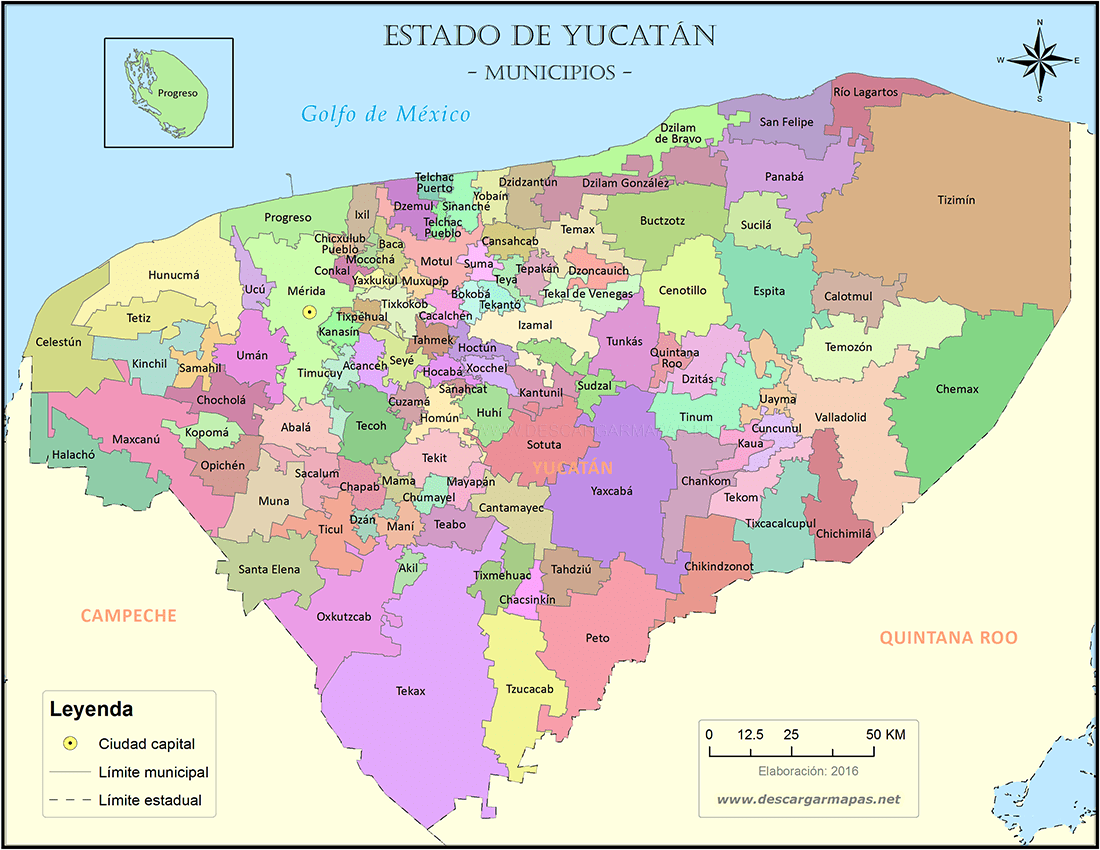
Mérida: the Spaniards thus renamed the territory found in ruins and that in Maya it was called Ichcaansihó (ich is face or face, caan is sky, if it is an offering and ho is a numeral in reference to the five main pyramids that were in the city) , which can be translated as Five hills
Coastal municipalities
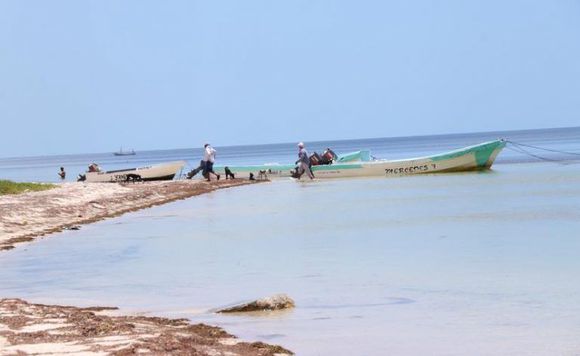
- Celestún: Stone fright (celes is fear and tun is stone).
- Hunucmá: although Hun is ‘only’ and Nucmá is equivalent to ‘answer’, the colloquial meaning is Agua de Ciénaga (swamp water).
- Progreso: this name does not come from the Maya, but is in honoring Juan Miguel Castro, political entrepreneur known in the nineteenth century as’ Progreso’ Castro.
- Ixil: comes from the Maya “Place where it is bristling”,
- Dzemul: Devastated Hill (dze is ravaging or rest, and mul is a contraction in hill or mound).
- Telchac: Rain very necessary (teel is necessary or indispensable, and chaac is the god of rain).
- Sinanché: Tree of the scorpion (siína ‘an is scorpion and che’ is tree).
- Yobaín: Above lizards (from the words yokol, óok and ól, which is above, and áain or áayin,what is lizard).
- Dzidzantún: Expired stone (dzidzan is defeated, and tun is stone).
- Dzilam: from the Maya ‘peeled’ or ‘without wrapping’.
- San Felipe: in the past it was called in Maya Aktam Chuleb (aktab is opposite and chuleb is a regional bird) bone ‘In front of the Chuleb’.
- Rio Lagartos: in the past it was called Holkoben in Maya, that is to say, The three stones that form a bonfire (k’óoben is a bonfire or bonfire).
- Tizimín: Place of the tapir (tzimin is tapir).
Not coastal west of Mérida
- Halachó: Reed or mouse plant (halal is reed and chhó is mouse or rat).
- Maxcanú: some consider it to mean Beard of Canul (meex is beard and canul is last name) but it is also considered to mean His four monkeys (maax is monkey , can is four and ú is his).
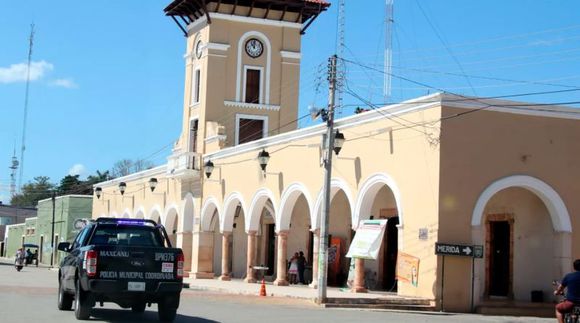
- Kinchil: Place of the Maya God (kinichi alludes to a Maya god).
- Tetiz: Choose sweet potato (tet is to choose and iz is sweet potato).
- Ucú: Place of the seven moons (uuc is seven and ú is moon).
- Samahil: Place of the Tzama legume.
- Umán: Your purchase or your walk (word composed of the third-person possessive pronoun, su, and for ‘maan’ which is purchase).
- Chocholá: Saline water (chhochhol is brackish or saline and a contraction of ha is water).
- Kopomá : Deep water or water that does not sink (comes from Kopol, Koopol’s contraction is to sink, and má is not).
- Opichén: Inside the cave or inside the well (comes from op, inside or inside, and chheen is well ).
Municipalities south of Mérida:
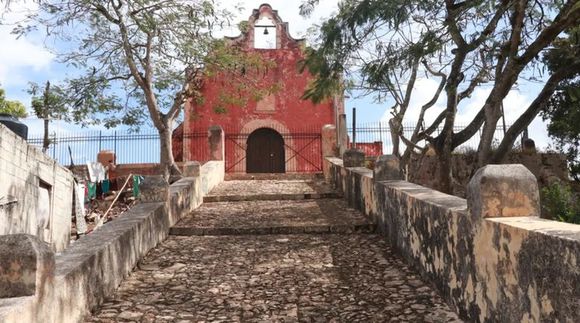
- Oxkutzcab: Place of the ramón, tobacco and honey (tobacco is k’utz and honey is cab) or it can also be translated as Place of the three wild turkeys (ox is what has already been said, cutz is wild turkey and cab is what has been said before).
- Tekax: Place of the mount (te is place, here, and k’áax, kaxá is mooring or mount).
- Akil: Place of the vines (ak is vine and the suffix Íl is quantity).
- Tixmehuac: has two meanings, turtle tail (x-nej is tail and áak is turtle) or place of the Xmeuac (population of Indians).
- Chacsinkin: Giant firewood from the sun (chac is giant and red, if it is firewood and kim is time, day or sun).
- Tahdziu: Place of the strong bird (tah is strong, as said before, and dziú is a bird of the thrush type).
- Peto: Crown of the moon (pet is crown and uj is moon).
- Tzucacab: Small portion of town (tzuc is portion and cacab is small town or hill).
Municipalities of the east, adjacent to Tizimín:
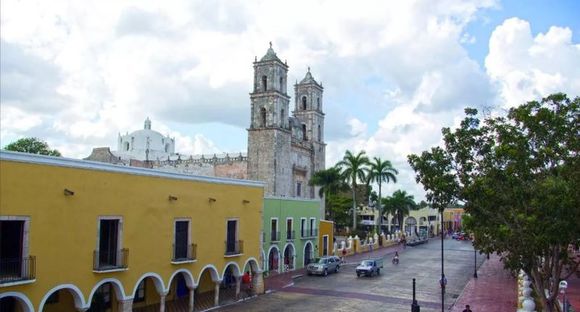
- Panabá: murky water (panab is dug or scratched and á or ha is water).
- Sucilá: Grass water (su’uk is grass or ha or á is water).
- Espita: Place where water is scarce (p’íit is little and ha o á is water).
- Calotmul: Two united hills (ca is two, lot is a particle to count pairs and mul, contraction of mul, is hill).
- Temozón: Place of the whirlpool (te’e is place, here, and mozón is whirlpool or whirlwind).
- Valladolid: before being named that, in homage to a homonymous Spanish city, the Maya called it Zací (zak is white and I is hawk, bone, white hawk).
- Chemax: Monkey tree (che is wood and max is contraction of maax, monkey).
- Chichimilá: means something like ‘Look at my hard nipple’ (chich is hard, im is nipple or seine and ilá or ilé is see, look).
The other municipalities:
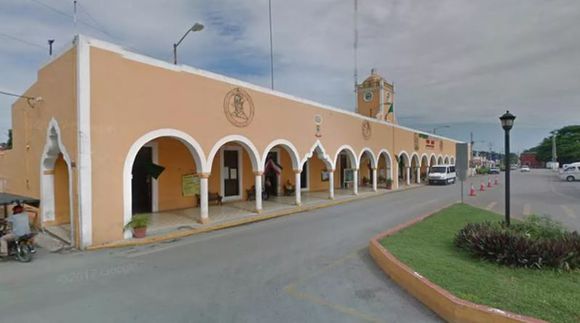
- Abalá: Plum of water (abal is plum and á or ha is water).
- Acanceh: Lament of the deer (acan is groan and ceh or ceeh is deer).
- Baca: Place where water is spilled or horn with water (bec is bone or horn and á or ha is water).
- Bokobá: Stirred water (bokob is to beat or bogar and á or ha is water).
- Buctzotz: furry outfit (buc is dress or suit and tzotz or tzootz is bristle or hair).
- Cacalchén: Well of two mouths (ca comes from two, cal is neck and chhen or chhee is well).
- Cantamayec: Tamay’s four honeycombs (can means four, tamay is last name and ec is honeycomb or hornet’s nest).
- Cansahcab: place of the four caves (can is four and zazcab or zahcab is cave).
- Cenotillo: diminutive of cenote (dzonot is abyss).
- Conkal: (kal is twenty) and Conkal is also considered to come from cuunka, which is a parasitic plant.
- Cuncunul: Invaluable spell (from cun, cunel, which is worthless and cunul which is charm or spell).
- Cuzamá: Water of the swallows (cuzan is swallow and á or ha is water).
- Chapab: Take the depopulated or recover it (chha is to catch or to recover and pab contraction of paab is to destroy or depopulate).
- Chankom: Place of the small vessel (chan is small and kom is pot or ravine).
- Chicxulub: Place of the nailed horn (chhic is to nail and xulub is horn).
- Chikindzonot: Cenote of the west (chikin is west and dzonot is cenote).
- Chumayel: Place where the pumpkin does not burn (chu is pumpkin, ma is not and yel is contraction of yelel, to burn).
- Dzan: Here it sinks.
- Dzitás: a single banana plant (dzit is numeral and haaz is banana).
- Dzoncauich: Cauich’s shotgun (dzon is shotgun or rifle and cauich is a popular last name).
- Hocabá: Place of plucked plum (hoc is plucked, zafar and abal is plum).
- Homún : Five raw or tender (ho is five and mun is not cooked).
- Hoctún: Place where the stone is plucked (hoc is plucking and tun is stone).
- Huhí: Place of iguanas (huh is iguana and huhil is plural, iguanas).
- Izamal: Daily regina (from Itz or Yitz, regina, and amal (daily or constant).
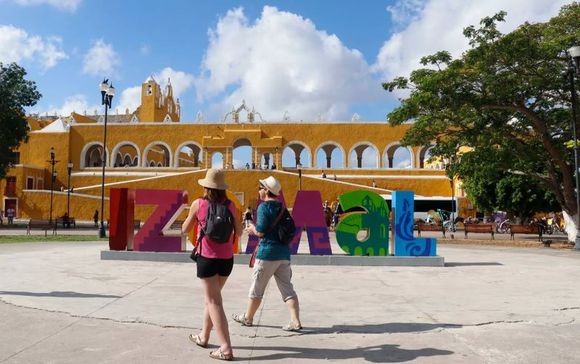
- Kantunil: Place of the precious stone (kan is known, and tunil is stones).
- Kaua: What is bitter (ka is a contraction of kaah, bitter, and yuá, it is).
- Mama: No, no (more is negation).
- Maní : Place where everything happened (manik is the day of the Mayan calendar related to the deer).
- Mayapan: Flag for some (ma is no, ya’ab is many and pan is flag).
- Mocochá: Water from the hole (moc is knot, och is shadow and á or á is water).
- Motul: in honor of the Maya priest Zac Mutul.
- Muna: Place of soft water (mun is tender or soft and á or ha is water).
- Muxupip: buried bread (mux is to grind or crumble and pib or piib is oven).
- Quintana Roo: in honor of the hero of the Independence of Mexico.
- Sacalum: White earth (from sac, white, and lum or luum, earth).
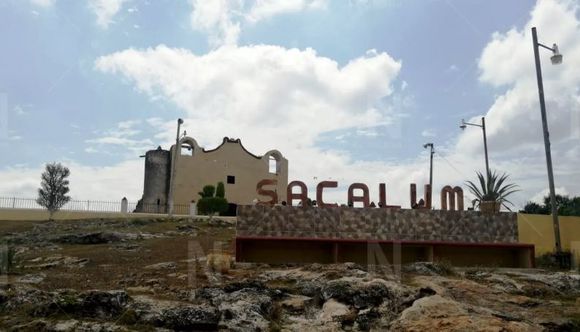
- Santa Elena was Nohcacab, that is, the Great Villa.
- Sanahcat: To make the jar ring (tzanlah is to make a sound, and kat is a jar, although there is also a tree from the region called Tzanlahcat).
- Seyé: from Sayib, the place where water springs.
- Sotuta: Spinning water (sotut is back and a or ha is water).
- Sudzal: Water from the Suudz tree.
- Suma: Water from the vegetable Suum.
- Tahmek: Strong embrace (tah is strong and meek is embrace).
- Tekantó: Place of the Kantación tree (you are here).
- Tecoh: Place of the tigrillo (it is place or here and coh is tigrillo).
- Tekit: Place of the spill (kit or kití is spill).
- Tekom: Place of the hollow (kom is hollow).
- Teya: Place of the tree of sapodilla.
- Tepakan: Place of plant (pakán) that is similar to the tuna.
- Temax: Place of monkeys (maax is monkeys).
- Tekal (from Venegas): Prison (kal is to enclose) Venegas is in honor of a military man who was in the Caste War.
- Timucuy: Place of the turtledove (mukuy is turtledove).
- Ticul: There it settled (you are there or there, and which one is to be settled.
- Tinum: Place of abundance (number is abundant).
- Tixcacalcupul: Well of two mouths of the Cupules.
- Tixkokob : Place of vipers (ti is there or there and kokob is viper).
- Tixpéual: Place where the greeting or the dwarf abounds (ti is place, tix is abound and peul or peuil is greeting or dwarf man).
- Tunkas: Ugly stone (tun is stone and kaz is ugly, bad).
- Uayma: Not here (uay is here and ma is not).
- Xocchel: Counting magpies (xoc is counting and chel is magpie).
- Yaxkukul: First place of worship of God (yax or yaax is first, ku is God or nest and kul or kuul is worship or veneration).
- Yaxcabá: Place of green lands (‘ax is green and kaab is earth).
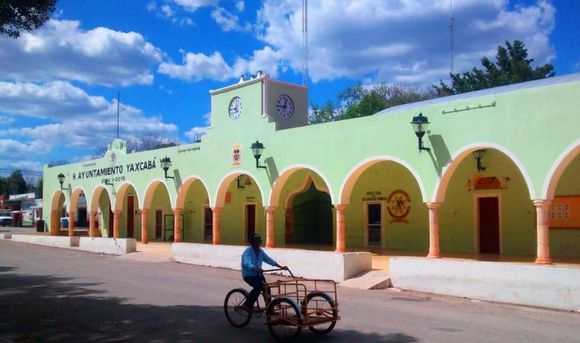
Which meaning of the municipalities did you like the most?
Meaning of Yucatán
It is said that the origin of the name of this Mexican state came from confusion, since the Spaniards when trying to communicate with the Maya, they responded: uh yu ka t’ann, which in Maya means ‘hear how they speak’.
Source: Sipse
TYT Newsroom


